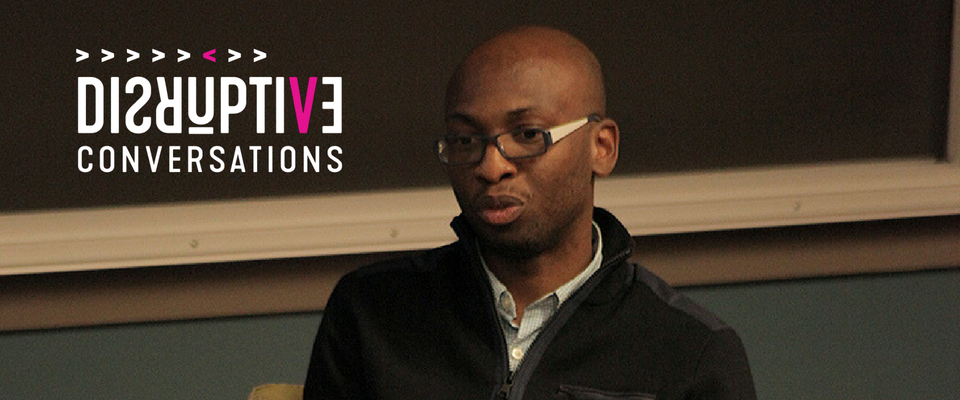Seyi Fabode is one of LinkedIn’s TopVoice in Technology. In this episode of Disruptive Conversations, we talk about many of his perspectives on disrupting sectors and systems.
In my conversation with Seyi, he attributes a major part of his success to bringing his whole self into all that he does. In his experience, he found that by being honest with himself and in showing up completely and fully, he has greatly transformed his personal and professional life. He loves writing and has been able to use writing to transform his life and career.
Seyi cut his teeth at the intersection of utilities, technology, and consumers. At one point he had a great interest in the automotive industry, but his first job out of school was within the power industry. This experience was surprisingly meaningful since he grew up in a country where it was not uncommon to lose power. So many of us take power for granted. Seyi has spent a considerable amount of thinking about how to ensure everyone in a city always has power.
One of the things that stood out for me in our conversation was his approach to understanding the power sector. In my own experience, I have found that questions can greatly improve the quality of our interactions and perspectives. One of the questions that have helped to make Seyi one of LinkedIn’s ToVoices is: Are we really satisfying the folk on the other end of the switch? Although there are many fields that take a similar approach to understanding the end user. Seyi’s habit of putting the needs of the end consumer first changes his gaze. For example, a question that emerged from our conversation was, how is this product meeting a fundamental need of the end consumer? In the episode, he uses a personal example to illustrate his point. He has a fundamental need or desire for power but he wants that power to have as little impact on the planet as possible. Most of us have similar needs or desires and Elon Musk has used Tesla to make a beautiful package that plays toward this fundamental need or desire. In many ways, Elon Musk is not doing anything all the unique. Many other people in the industry have been doing this before Elon Musk, but Musk does better than most. His packaging appeals to our fundamental needs and desires. In doing so, Musk appeals to our emotions and is able to build a brand that so many covet.
When I asked Seyi what sector or system he was trying to disrupt, he said consulting. Seyi argued that from his perspective, and I happen to agree, too many companies hire consultants to tell them what they want to hear. Additionally, many of these companies charge exorbitant rates for work that does can be done at a much lower cost. For him, the game in the consulting world is not about asking new beautiful questions or adding value, it is about keeping a client on billable hours for as long as possible.
Seyi finds that he is good at hearing, listening, and responding to what is emerging. One of his frustrations is that many people take too long to act on the insights they receive. For example, when proposes new trends to a client, it is not uncommon for the client to return a few years later saying that he had warned them of these changes. For him, companies do not need validation for their existing beliefs, they need insight into future trends so they can align their business model to meet the demands of an emerging future.
When something is working, it takes a huge leap of foolishness to change what we are doing.
Seyi offers five very important pieces of advice for people who trying to disrupt sector and systems.
- Be open to being wrong.
- Discover the answer to the question, what are the drivers of the industry you are in?
- Context is king, but focus is best.
- Your innovation should be additive and not subtractive.
- Understand the drivers of your sector or industry.
This last piece of advice is very informative. For many of us who work to disrupt a sector or system, our impatience or frustration leads us to skip the step of understanding why things are the way they are. When I ask the question, what is your least favourite word or phrase? The most common answer is “that’s just the way it is.” Seyi reminds us that it is important to ask why are things the way they are? His advice is to make sure you understand the drivers of your industry. It is a good reminder that sometimes we need to return to the basics. He reminds us that sometimes, things are the way they are because the core premises that the system was built upon greatly influence the dynamics of the system. If we try to change some of those things that were the foundations on which the system was built, we can actually erode the integrity of the system. There are some fundamental principles that if we violate, it compromises the entire system. At times, innovation should be additive and not subtractive.
Links related to the episode:
- Seyi’s Linked in page: https://www.linkedin.com/in/seyifabode
- Seyi’s website: https://www.seyifabode.com/
